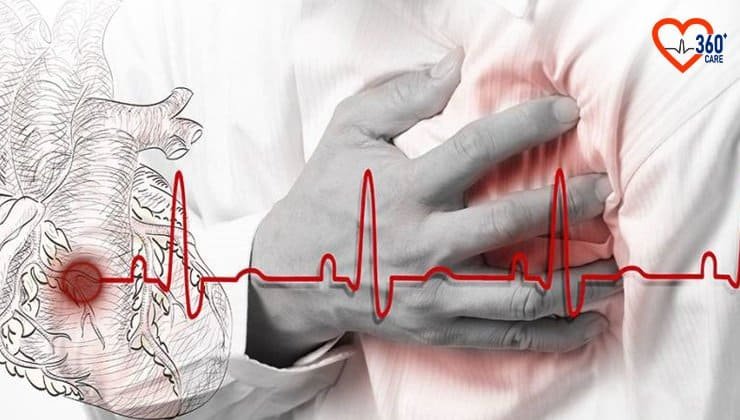The number of people affected by heart diseases continues to rise each year, leading to an increase in patients undergoing heart bypass surgery in India. Studies have shown bypass surgery is highly effective in improving life expectancy in patients with heart diseases.
Most of the patients are concerned about life expectancy after bypass surgery. Keep reading further to know more!
Understanding Bypass Surgery
Heart bypass surgery, also known as coronary artery bypass grafting (CABG) is a procedure done to restore the blood flow around the blocked heart artery.
It is done on patients to treat symptoms of coronary artery disease, including chest pain and shortness of breath. It helps prevent heart attacks and improves heart function thereby improving overall quality of life.
Let us delve deeper into life expectancy, recovery time, possible complications, and lifestyle changes required after the surgery!
Heart Bypass Surgery: Recovery Time
The recovery after heart bypass surgery takes time and varies among individuals. Most patients may stay in hospital for 5-7 days after the surgery. The time frame for recovery includes:
- Sit in the chair after surgery- after one day
- Walking- after 3 days
- Walking up and down stairs- 5 to 6 days
- Hospital stay- 5 to 7 days
- Complete recovery- 3 months or 12 weeks
You may also participate in the cardiac rehabilitation program for faster recovery through guided exercise, diet, and lifestyle changes. The recovery time may be longer if you experience complications during or after the surgery.
Life Expectancy After Bypass Surgery: Factors Involved
The life expectancy after bypass surgery may differ between patients. But, the good news is that patients who take care of their heart health post-surgery may significantly improve their quality of life.
A 30-year follow-up study found that the estimated life expectancy after the first bypass surgery is approximately 17.6 years.
According to many health experts and studies, the average life expectancy after bypass surgery is around 15- 18 years if the patient has regular follow-up care and controls the risk factors. It may increase or decrease depending on different factors.
The different factors that may influence life expectancy:
1. Age
Age is a significant factor that affects the life expectancy after a bypass surgery. A study showed the advanced age group showed a decline in 10-year and 15-year survival rates.
Generally, younger age group patients tend to have a better life expectancy compared to older age.
2. Gender
Few studies have shown that female patients have a higher risk of comorbidities and postoperative complications compared to male patients. They have a lower long-term survival than men after undergoing coronary bypass surgery for angina.
However, the differences in life expectancy between the genders are minimal, so, gender should not be considered an independent risk factor for poor life expectancy.
3. Comorbidities
The presence of other medical conditions including high blood pressure, high cholesterol, diabetes, and renal dysfunction may complicate recovery rates and contribute to lower life expectancy.
However, a study showed that patients who survived out-of-hospital cardiac arrest and had bypass surgery had notable survival rates five years after surgery.
4 Lifestyle Modifications After Bypass Surgery To Improve Life Expectancy
After bypass surgery, it is essential to follow the instructions provided by your healthcare provider and have routine health checkups.
You may maintain the newly repaired heart after bypass surgery by maintaining a healthy lifestyle and continuing to take prescribed medicine to avoid the risk of heart problems in the future.
1. Eat a healthy diet
A healthy balanced diet is required to help with recovery after bypass surgery. An unhealthy diet may cause heart problems after the surgery.
Many experts suggest a diet rich in fruits, vegetables, whole grains, nuts, olive oil, dairy products, fish, and poultry that are high in fiber can help in recovery.
It is important to avoid sugary drinks, foods with high sodium, processed meats, and fast foods as they are high in trans fat and are unhealthy for the recovering body tissues.
2. Exercise regularly
Engaging in regular physical activity is essential after bypass surgery. You may start slow and gradually include moderate-intensity exercises, including walking or swimming in your daily regime.
Avoid lifting objects more than 20 pounds and do not push or pull heavy objects. You may avoid holding the arms above the shoulder level for a long time.
However, it is important to get consent from a doctor or cardiac rehabilitation specialist before starting any physical activity.
3. Get an adequate amount of rest
Getting an adequate amount of rest after surgery is key to faster recovery. Spread the activities throughout the day without any strenuous activity. Avoid too much napping during the day to get enough sleep in the night.
Avoid climbing stairs up and down several times during the day especially immediately after the surgery.
4. Avoid smoking and drinking alcohol
Smoking may increase the risk of developing heart problems after heart surgery. You may ask for help and advice from your healthcare provider about quitting smoking.
If you drink alcohol, it is advisable not to exceed the recommended limits. If you exceed the recommended alcohol limits, it may increase the risk of heart problems after the heart surgery.
Conclusion
Heart bypass surgery can enhance life expectancy and improve your heart health. But, it is important to follow the healthcare provider’s instructions and modify your lifestyle factors to avoid complications. Proactive health management is key to a healthier lifestyle after surgery.
If you have any queries or develop any symptoms after a heart bypass surgery, book your appointment with Dr. Nikhil P.J.Theckumparampil, Consultant Heart Specialist and Cardiac Surgeon at Heart360 Care in Chennai.
Frequently Asked Questions
Studies have shown that the average life expectancy after bypass surgery is approximately 15-18 years before needing another intervention. However, the average life expectancy of patients may vary widely depending on factors, including age, gender, presence of comorbidities, and other lifestyle factors.
Some surgeons consider the maximum age limit for heart bypass surgery as 80 years and over. However, a new study shows that age alone shouldn’t be a criterion to deny a bypass surgery. So, each patient should be assessed individually taking into consideration their health status, and psychological and social factors.
No, it does not hurt a lot after bypass surgery especially if you have a proper pain management plan. You may be sore where the cuts were made and pain begins to decrease from the third day after the surgery with painkillers. Also, you may feel tired and in three weeks you will be free from pain.









